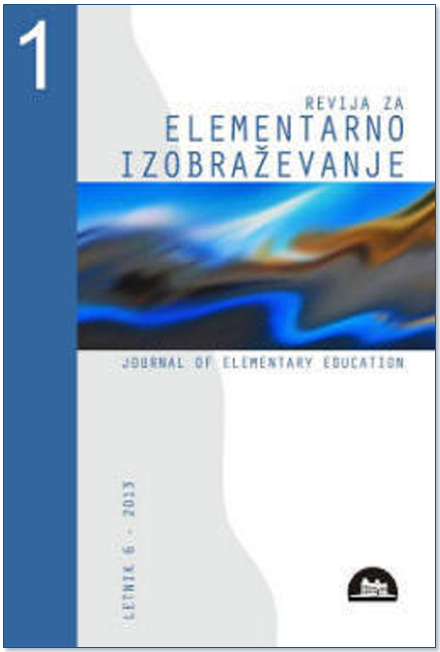Pristopi učiteljev pri oblikah pomoči učencem z učnimi težavami pri matematiki
Abstract
Teaching Strategies for Helping Students with Difficulties in Learning Mathematics. Pupils’ performance in school is influenced by various elements, such as cognitive, social, and emotional factors, home environment, school environment, etc. As regards school, the organisation of education and teachers’ conduct in teaching play an important role. From the perspective of pupils with learning difficulties, teachers’ decisions are closely linked with their knowledge of learning difficulties and the causes of the latter as well as with the methodical knowledge they need so as to be able to teach pupils with learning difficulties. The first part of the article introduces general and specific learning disabilities of pupils in mathematics, along with the causes for learning disabilities and the means to helping pupils. The second part of the article summarises the results of a survey, the main purpose of which was to examine which were those mathematics topics that tended to cause most learning difficulties. The survey also focused on the satisfaction of teachers with the efficiency of the methodical ways of helping those pupils, and on the qualification of teachers to deliver different kinds of assistance. The results of the survey indicated that most teachers noticed learning disabilities occurring in multiplication, addition and subtraction over tenths, in quantities/measure units/conversion of units, and in solving mathematic problems and textual exercises. The teachers were fairly satisfied with the efficiency of the methodical ways of assistance. They expressed most satisfaction with those approaches which they felt they were most qualified for, i.e. the use of different didactic props and adapting the ways of reinforcing knowledge with pupils who had learning disabilities.
Downloads
Copyright (c) 2013 The Journal of Elementary Education

This work is licensed under a Creative Commons Attribution-NonCommercial-NoDerivatives 4.0 International License.
